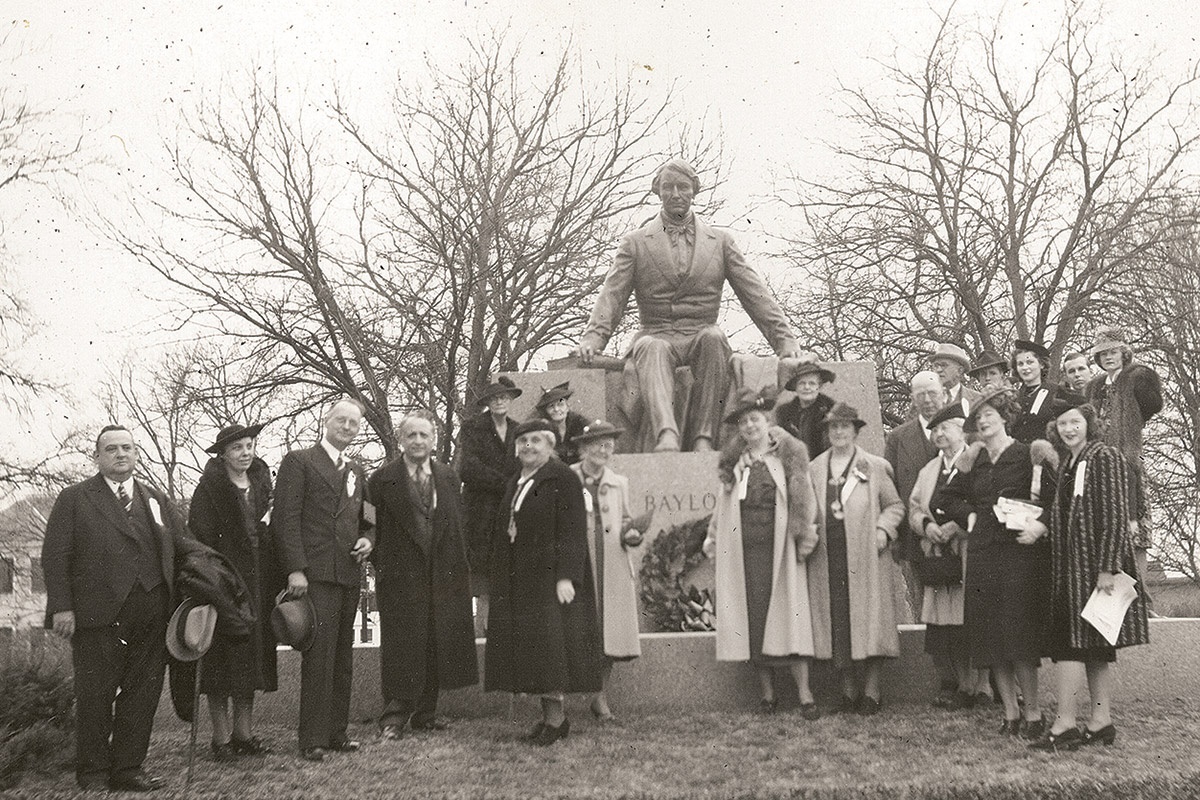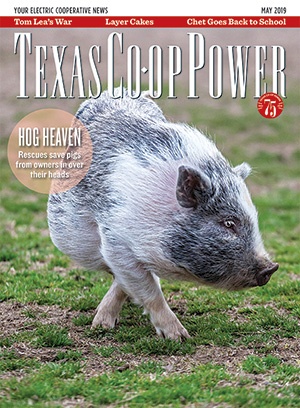Even though the name Baylor has been prominent in Texas higher education for 174 years, Judge R.E.B. Baylor’s name was attached to the university only as the result of a quirky legislative process.
Legislation to charter a Baptist university bore two other names before Baylor’s was substituted.
In 1844, the Texas Baptist Educational Society directed Baylor, the Rev. William M. Tryon and J.G. Thomas to petition the Congress of the Republic of Texas to charter a Baptist university. The society first named the institution San Jacinto University, then Milam University, eventually deciding the university should bear the name of a prominent Baptist. Baylor’s name was chosen because he had authored the legislation.
Robert Emmett Bledsoe Baylor was born in Lincoln County, Kentucky, in 1793. His father served as a captain in the Continental Army during the American Revolution. Although he attended schools around Paris, Kentucky, the younger Baylor was largely self-taught. He followed in his father’s footsteps as a 19-year-old and joined the state militia during the War of 1812, taking up arms again in the Second Creek War in Alabama in 1836. As late as 1840, he rode into battle near San Antonio following the Council House Fight, after peace negotiations between Anglos and Comanches broke down.
In History Along the Way, Dan K. Utley wrote, “Baylor studied law in the Lexington office of his distinguished uncle, Jesse Bledsoe—who saw service in both the U.S. Senate and the Kentucky House of Representatives—passed the bar exam and opened his own office while in his early twenties.”
Baylor served one year as a Kentucky state representative in 1819 before resigning the position and moving to Alabama. Period accounts suggest the sudden move was motivated by grief after the death of his fiancée in a riding accident.
As a lawyer in Tuscaloosa, Baylor returned to politics and won election to the U.S. House of Representatives. He moved to Selma and then Mobile and in the summer of 1839, attended a revival at the Baptist church in Talladega led by his cousin, the Rev. Thomas Chilton. Baylor decided he needed to be saved. “Also a lawyer and former politician,” according to Utley, “Chilton was a close colleague of David Crockett and enjoyed additional success as a minister. Baylor, viewed by various historians as a deist, Unitarian, atheist, infidel or agnostic, converted to Christianity while attending the revival.” Not long afterward, the Talladega Baptist Church ordained him as a minister.
In 1839, Baylor moved to La Grange, where at the urging of preacher Z.N. Morrell, he became a crusading frontier clergyman. Serving as a justice of the Third Judicial Court of the Republic of Texas, Baylor, with gun at hand, held court proceedings during the day, and in the evening, he preached and organized churches. He saw no conflict in this arrangement, although once during a sermon, he became overexcited and referred to his parishioners as “gentlemen of the jury.” Baylor’s charismatic sermons and keen intellect often moved his audiences to laughter or tears.
Baylor served as a trustee of Baylor University at its first location in Independence and taught law classes. He retired from the bench in the 1860s and lived out the remainder of his life in the nearby Gay Hill community. He died in 1873 and was buried on university grounds.
By the 1880s, Baylor University had out-grown its Independence site and merged with the all-male Waco University, and a women’s school was established in Belton as Baylor Female College—now the University of Mary Hardin-Baylor.
Judge Baylor’s remains were moved to Belton, but a fire in the administration building near his second grave forced another move. His third grave, covered by a simple marble slab, lies near the chapel at Mary Hardin-Baylor.
Martha Deeringer, a member of Heart of Texas EC, lives near McGregor.


